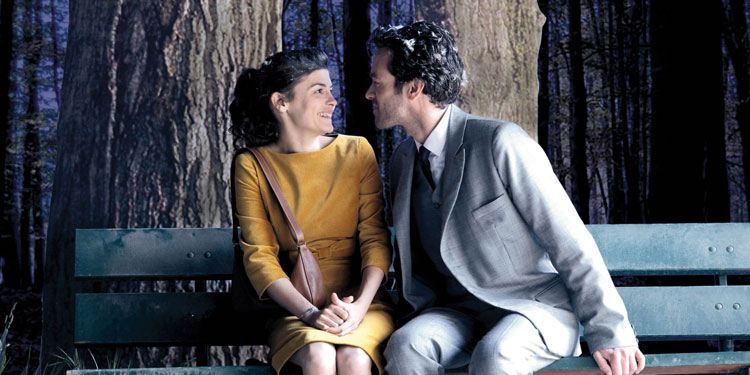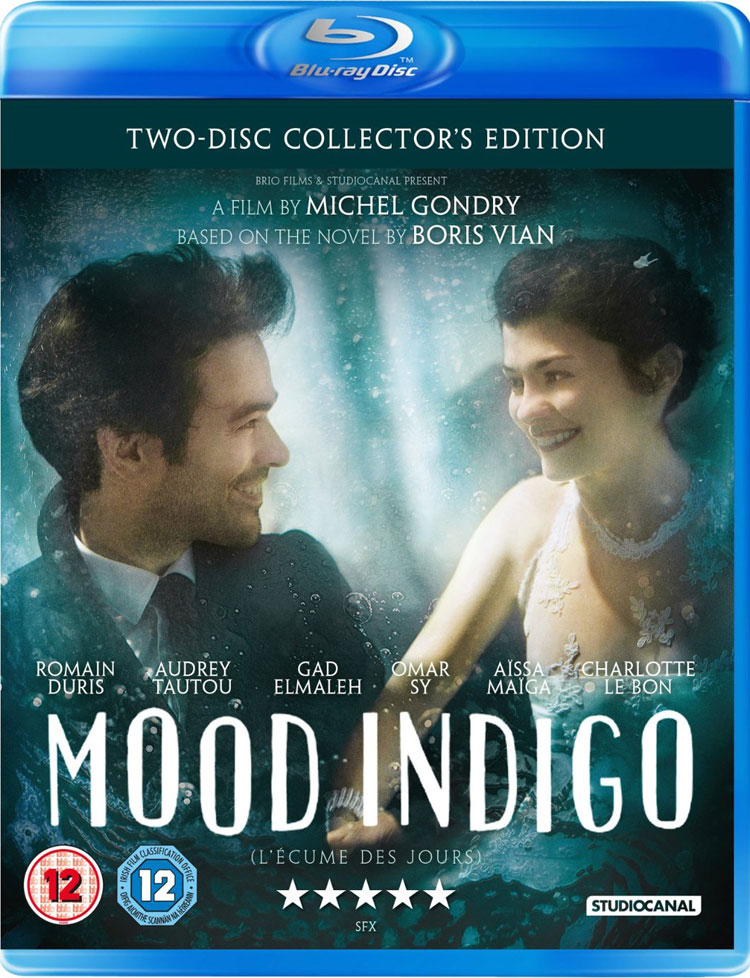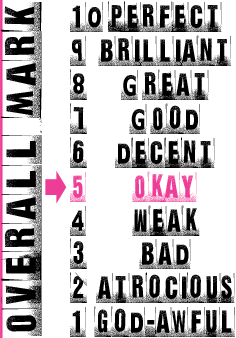
Director: Michel Gondry
Running Time: 94 mins/131 mins
Certificate: 12
Release Date: December 1st 2014 (UK)

As a film reviewer it feels almost compulsory to believe that a director’s original cut is the one we ought to watch, but in some cases that’s not true.
Mood Indigo was released in France back in early 2013 with a very lengthy running time of 131 minutes. However despite having Michel Gondry (Eternal Sunshine, Be Kind Rewind) at the helm and talents such as Romain Duris, Audrey Tautou and Omar Sy starring, it took over a year for it to arrive in the US and UK, and when it did, it was 40 minutes shorter.
At the time, many harrumphed about the idea of philistine producers neutering Gondry’s original intentions, but the home entertainment release gives us a chance to see both versions side by side and it turns out that what we got was better than original edition the French had.
It’s a relatively simple if surreal story, following Colin (Duris), who meets and falls in love with the beautiful Chloe (Tautou). However shortly after getting back from their honeymoon it turns out Chloe has contracted a potentially fatal illness where a lily is growing in her lung, and so Colin must help to save her.
Surrounding all that – and taking up a huge amount of the running time of the Director’s Cut – are an endless array of flights of fancy, from a tiny man in a mouse suit who lives is Colin’s apartment to doorbells that crawl down the wall and try to escape.
Arguments about style over substance can often be rather unsound as with some movies the style is the substance (or at least helps create the substance). Mood Indigo is designed to be one of the latter, but the problem is that it feels like there was no quality control or realisation of when things might be going too far. The result, in the Director’s Cut version at least, is like ordering an enormous slice of incredibly gooey chocolate cake – it tastes absolutely gorgeous but the more bites you take the more you realise that it’s far too rich and that it’s going to be difficult to finish.
It’s an apt metaphor as the first 20 minutes are incredibly magical, with some brilliant, jaw-dropping imagery including an incredibly conceived and executed dance scene where people’s legs become so bendy they look like they just fell out of a Betty Boop cartoon. However after a while it all gets to be a bit too much, so that Mood Indigo becomes a never-ending series of images and conceits that often go on for far too long, with not much else to keep you hooked in.
It is admittedly astonishingly imaginative and some of its phantasmagorias are astonishing to look at, but it’s so in love with them that’s it’s determined to show us every single second of them whether they add anything or not. And in the end the characters all get rather lost in the midst of it.
That’s where the much shorter Theatrical Cut comes in, as while it retains the fantastical and surreal, it pulls back on many of the flights of fancy to concentrate on the story. In the Director’s Cut Colin and Chloe have a tendency to come across as rather flat and uninteresting, largely because they feel like window dressing that nobody is particularly interested in. However in the shorted version it becomes apparent there’s a little more to them (although not massively), and the endless incredible images are more a part of their world than something that’s constantly screaming ‘Look at me, aren’t I unusual and clever?’.
Even so it’s not a great film, largely because it doesn’t spend enough time really getting us to care about the characters. It thinks it does, but it really doesn’t, with the largest issue being that it never treats Chloe as a fully formed human in her own right, more as an extension of Colin, which makes him seem very self-absorbed and narcissistic when things start to go wrong. It doesn’t help either that the metaphors it sometimes employs behind its images often feel like rather blunt and obvious tools.
That said, in its Theatrical Cut form it is worth a look and it’s undeniably beautiful and full of astonishing imagination, but in its Director’s Cut version, boy does it go on and on and on.
Overall Verdict: A work of incredible imagination and incredible to look at, but as a work of storytelling it’s far less interesting. Mood Indigo just about gets away with it in its 90 minute version, but at 130 minutes it’s more than stretching it.
Reviewer: Tim Isaac





Leave a Reply (if comment does not appear immediately, it may have been held for moderation)